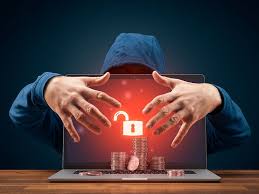Cryptomomen.com – In the realm of digital finance, the significance of a secure connection for safeguarding cryptocurrency transactions cannot be overstated.
With the rise of cryptocurrencies as a prevalent form of exchange, ensuring the integrity and security of transactions has become paramount.
A secure connection serves as a protective shield against malicious actors who seek to intercept, manipulate, or steal sensitive information while engaging in crypto-related activities.
Maintaining a secure connection through the use of reputable exchanges, employing robust encryption protocols, and adhering to best practices in digital security forms the cornerstone of protecting crypto assets and ensuring the seamless execution of transactions.
Please continue reading to delve into the intricate details of crypto security and the crucial role a secure connection plays in safeguarding your digital investments.
The Risks of Unsecured Crypto Transactions
Unsecured crypto transactions expose users to a plethora of risks, including theft, fraud, and loss of funds.Key considerations for enhancing security:
Use secure wallets and exchanges.
Enable two-factor authentication. Avoid sharing sensitive information.Be wary of phishing scams. Transact only through reputable platforms.
Thank you for visiting Cryptomomen.com
How to Establish a Secure Connection for Crypto Transactions
Crypto transactions require enhanced security measures to protect sensitive financial data.
Implementing robust encryption protocols, such as SSL/TLS, is crucial.
Additionally, utilizing multi-factor authentication and employing hardware security keys provides an extra layer of protection.
Regular monitoring and auditing of transaction logs is essential to detect and prevent unauthorized access.
By adhering to these best practices, you can establish a secure connection that safeguards your crypto assets and minimizes the risk of compromise.
Types of Secure Crypto Wallets
Hardware wallets, software wallets, and paper wallets offer varying levels of security for storing and managing crypto assets.
Hardware wallets provide the highest level of security by storing private keys offline in a physical device, while software wallets offer convenience but are more susceptible to hacking.
Paper wallets are a simple and cost-effective option, but they can be easily lost or destroyed.
Consider the balance between security and convenience when choosing a crypto wallet.
Best Practices for Crypto Security
Implement comprehensive security measures to safeguard your cryptocurrency assets.
Employ strong passwords and multi-factor authentication for your accounts.
Keep your private keys secure offline, using hardware wallets or reputable custodial services.
Verify the authenticity of transactions before initiating them by checking the transaction details and recipient address.
Be wary of phishing scams and only interact with trusted platforms. Regularly monitor your accounts for suspicious activity and report any unauthorized transactions immediately.
Use reputable exchanges and wallets with robust security features. Store your crypto assets in a diversified portfolio to mitigate risk.
Stay updated on the latest security threats and implement appropriate countermeasures.
By adhering to these best practices, you can enhance the security of your crypto investments and protect your digital assets.
Common Cyber Threats to Crypto Users
Common Cyber Threats to Crypto Users: Enhancing Security in Crypto Transactions
Cybercriminals target cryptocurrency users with a range of tactics, including phishing scams, malware, and exchange hacks.
Phishing attacks lure victims to fake websites or emails where they are tricked into revealing sensitive information, such as their private keys.
Malware infects devices and can steal crypto funds by accessing private keys or redirecting transactions to fraudulent wallets.
Exchange hacks involve cybercriminals exploiting vulnerabilities in crypto exchanges to gain unauthorized access to user accounts and steal funds.
To protect themselves, users should implement best practices such as using strong passwords, enabling two-factor authentication, and staying vigilant for suspicious emails or websites.
The Role of Regulation in Enhancing Crypto Security
Regulation plays a crucial role in enhancing crypto security by introducing a framework of guidelines and standards.
Ensuring secure crypto transactions, these regulations establish protocols for data protection, authentication mechanisms, and risk management practices.
Moreover, they provide oversight and enforcement measures to deter malicious activities and bolster investor confidence.
By creating a clear regulatory landscape, regulators can foster innovation while safeguarding the integrity of the crypto ecosystem.
Emerging Trends in Crypto Security
The realm of cryptocurrencies is constantly evolving, bringing with it an array of emerging trends in the realm of security.
Blockchain technology, the backbone of crypto, is undergoing advancements to enhance transaction security.
Notably, zero-knowledge proofs are gaining prominence, allowing for the verification of transactions without revealing sensitive information.
Additionally, multi-factor authentication is becoming indispensable for securing access to crypto wallets.
Moreover, regulations are tightening, with anti-money laundering (AML) and know-your-customer (KYC) measures being implemented by exchanges to combat illicit activities.
These transformative trends are shaping the future of crypto security, bolstering the protection of digital assets in this rapidly evolving landscape.
The Future of Crypto Security
As crypto transactions surge, the security of these transactions is paramount. Advanced encryption methods, multi-factor authentication, and robust blockchain infrastructure play a vital role in safeguarding user funds. However, the future of crypto security holds even greater promise.
Quantum-resistant cryptography, zero-knowledge proofs, and decentralized identity management are some of the emerging technologies that aim to enhance security to unprecedented levels.
FAQs:
- Is crypto secure?
- Yes, with proper security measures in place, crypto transactions can be highly secure.
- What are the challenges to crypto security?
- Phishing, malware, and hacking attempts pose significant threats.
- How can I protect my crypto assets?
- Use strong passwords, enable two-factor authentication, and store your crypto in secure wallets.
Conclusion and Recommendations
To conclude, the heightened prevalence of cryptocurrency transactions necessitates the implementation of robust security measures to safeguard against malicious actors.
Firstly, multi-factor authentication (MFA) and strong passwords should be enforced for account access.
Secondly, cold storage hardware wallets provide an offline haven for crypto assets, minimizing the risk of online attacks.
Thirdly, regular software updates and vulnerability monitoring keep security patches current, mitigating software flaws.
Additionally, user education is paramount: guiding users on identifying phishing attempts and suspicious links can preempt security breaches.
Lastly, collaborative industry efforts foster information sharing and timely responses to emerging threats.
By adhering to these recommendations, crypto transactions can gain the necessary security to thrive in an increasingly digital world.
Hope it is useful
In conclusion, the utmost importance of a secure connection for crypto transactions cannot be overemphasized.
By adhering to the aforementioned best practices, crypto enthusiasts can significantly mitigate security risks and safeguard their digital assets.
As we bid farewell to this enlightening article, remember that knowledge is power.
Share this invaluable information with your peers, empowering them to navigate the crypto landscape with confidence.
Thank you for reading!



